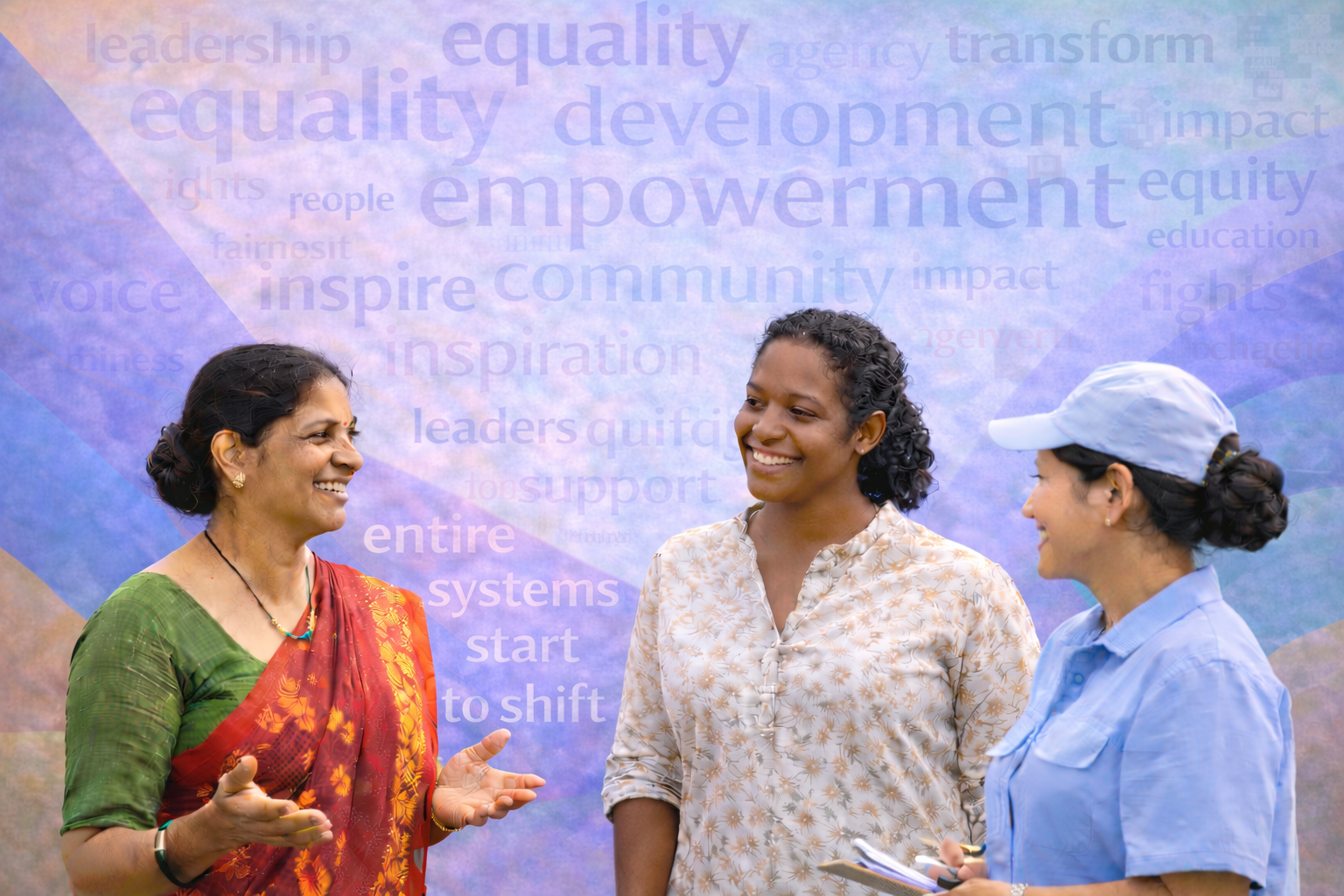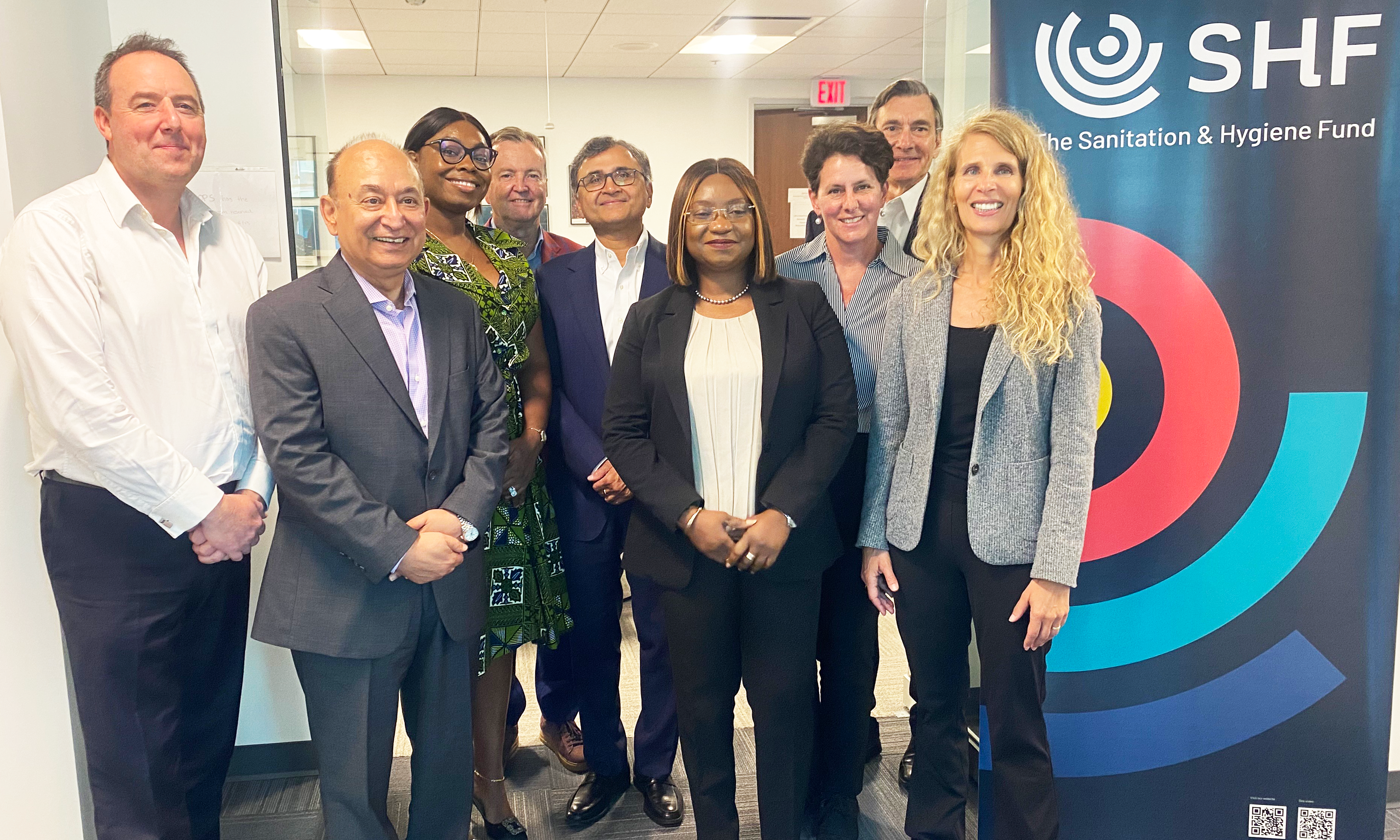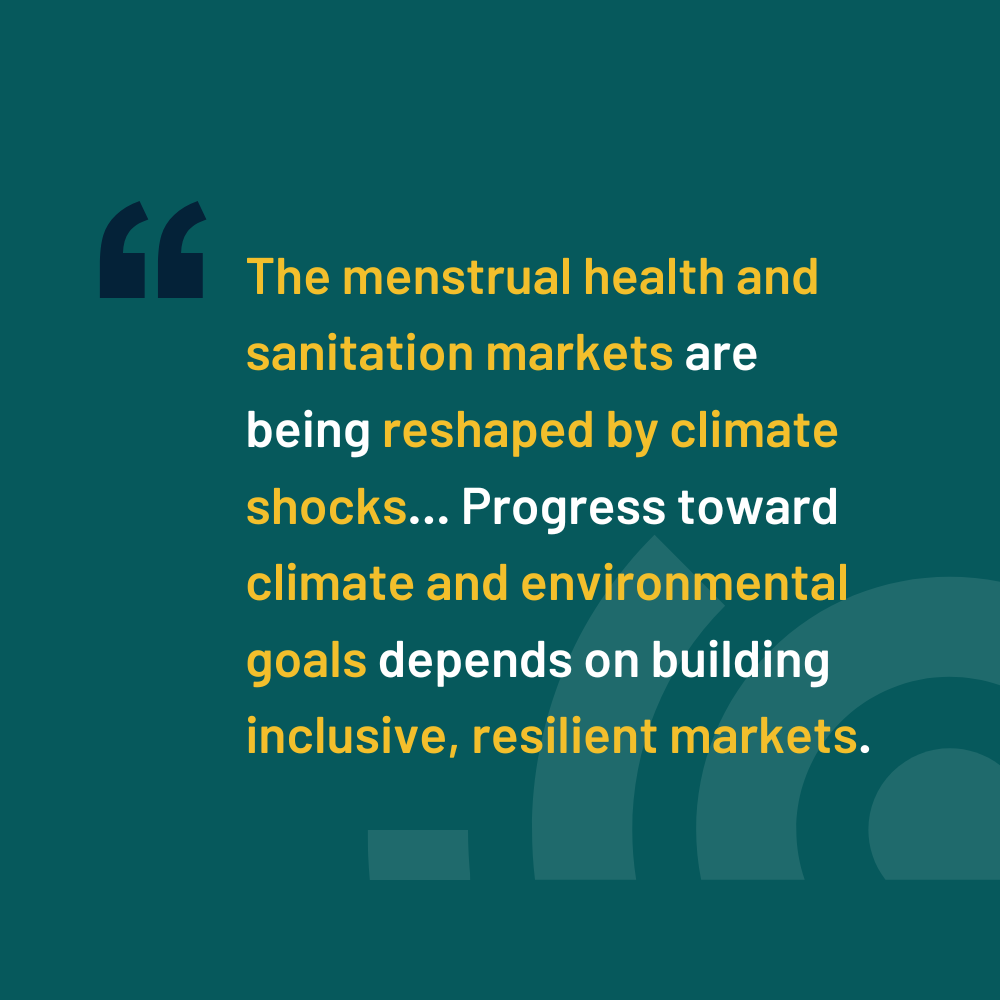
SHF Board welcomes sustained efforts to increase investment and financing to create thriving sanitation economies and menstrual health markets

At the 8th Board meeting, that took place in Washington D.C., members acknowledged the depth and breadth of efforts to drive national and global momentum for investment in sanitation, hygiene and menstrual health for social, economic and environmental benefit and the role that SHF is playing to increase that investment.
WASHINGTON D.C. - The Board of the Sanitation and Hygiene Fund (SHF) met for the eighth time in June 2024 to review the delivery of SHF’s strategy and programs and provide foundational direction for the next phase of the Fund’s strategy starting 2026. Under the leadership of its chair Ms. Cecilia Akintomide, the Board advised the SHF team on operationalizing our innovative finance model and sustained efforts to build thriving national sanitation economies and menstrual health and hygiene (MHH) markets for all in Low- and Middle-Income Countries (LMICs).
“With only 16% of the SDGs on track to be met globally by 2030, there is a need for a heightened sense of urgency, increased creativity, faster and more effective execution, and a convening of a wider group of partners, to change the narrative positively. At SHF, we are focused on target 6.2 on sanitation, hygiene and menstrual health. SHF stands as a responsive example of new development finance models to build a sustainable, climate-resilient, gender-equal future for all,” said Cecilia Akintomide. “With my fellow Board members, we have mobilized our individual and collective finance and development expertise to enable SHF to achieve its ambitions and deliver catalytic impact for people, economies and the planet.”
As SHF enters its fourth year of operations, we have been working closely with national governments to provide technical assistance on specific contextual challenges, investment cases, and market size estimations for national sanitation economies and MHH markets, building a growing pipeline of potential investments in parallel. We have also been collaborating with local partners to implement market-based sanitation projects in Kenya and Uganda, and the upcoming launch of a third in Nigeria, stress-testing our model while also contributing to sector intelligence on market and investment potential. These efforts run in parallel to engagements in various global fora such as the World Economic Forum in Davos and the G20 Development Working Group to champion investment in menstrual health markets and sanitation economies as fundamental pillars for an inclusive, sustainable future. As we grow our footprint, we are keen to build innovative partnerships across sectors and we were pleased to host representatives from the financial institutions in Washington D.C., UN agencies, investment firms and foundations during diverse sessions and on the sidelines of the board meeting.
“ As we work at SHF to move the funding needle on the fundamental issues of sanitation, hygiene and menstrual health which underpin social, economic and environmental well-being, we look forward to working with partners, including our donors the Kingdom of the Netherlands and Switzerland, to sustainably and catalytically finance these much neglected sectors and radically transform markets, economies and most importantly, lives,” said Dominic O’Neill, Executive Director, SHF.
A global UN fund, SHF is dedicated to achieving universal access to sanitation, hygiene and menstrual health (MHH) through market-based approaches. SHF works with LMICs to build robust and climate-resilient sanitation economies and MHH markets through catalytic financing. In East and West Africa, we are supporting countries to scale up sanitation, hygiene and menstrual health access through efforts on the enabling environment, private sector onboarding and partnerships to close the growth and gender gaps, sustainably.



